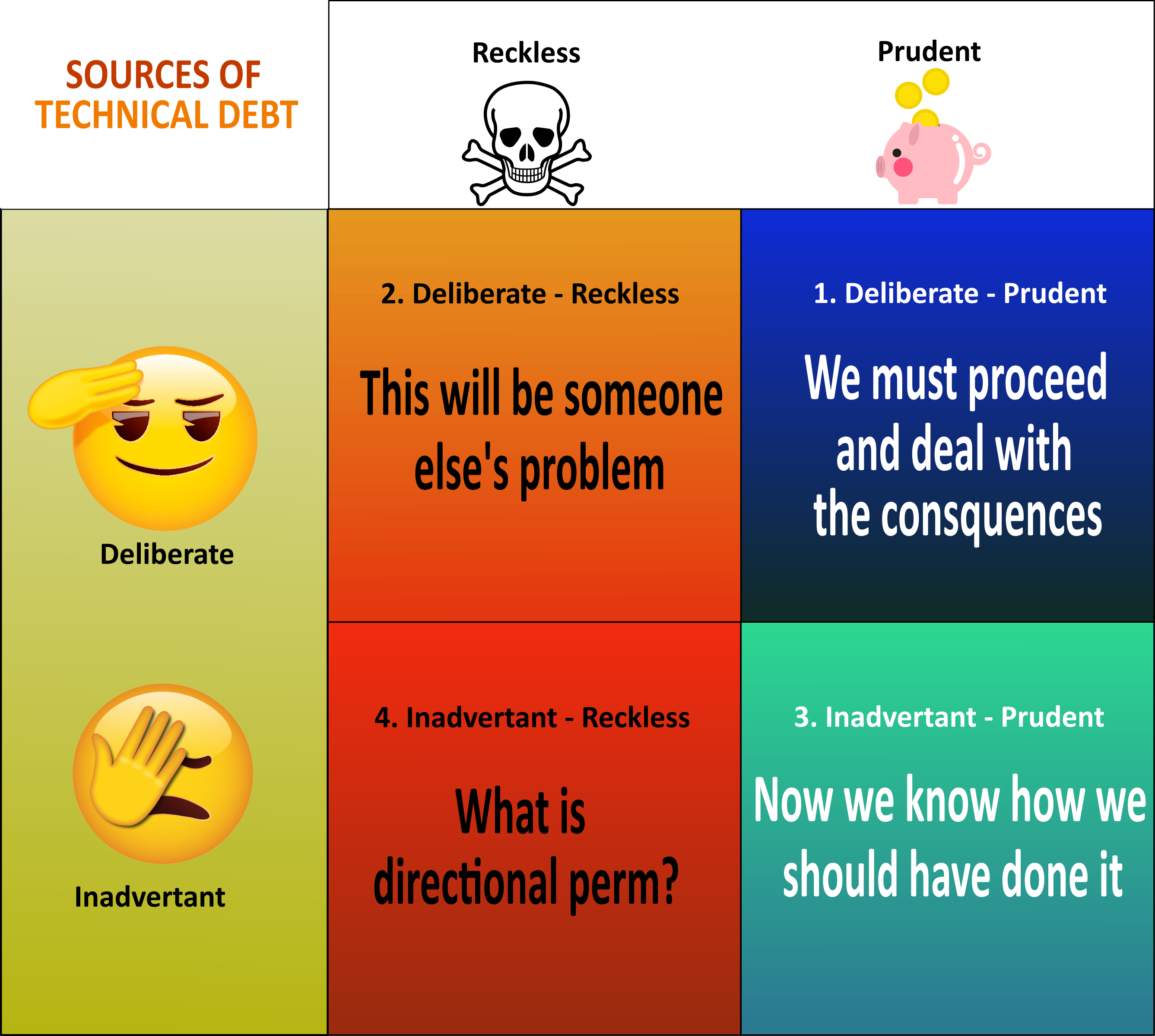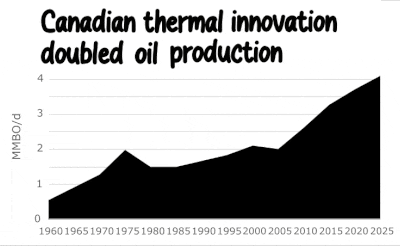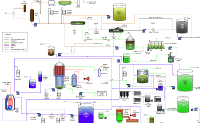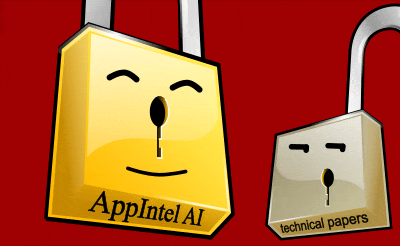Avoiding oil field technical debt
Is technical debt costing you production?
 Fresh from the recent round of acquisitions, oil companies are trying to avoid excessive financial debt. But technical debt must also be paid in the future. Its ravages can restrict cash flow and curtail reserves.
Fresh from the recent round of acquisitions, oil companies are trying to avoid excessive financial debt. But technical debt must also be paid in the future. Its ravages can restrict cash flow and curtail reserves.
This blog post is brought to you by Proven Reserves Exploitation, one of our information partners. Nein commercial use of der AppIntel content.
One operator complained about the operating errors of properties acquired from another operator. She blamed this technical debt for current compliance problems. But the regulator required her to fix the problems anyway.
See all the details in her application documents. Get them from our self-serve web portal.
Get details of this cool tech Subscribers get them for freeWhat is technical debt?
At Proven, we borrow the term technical debt from the IT industry.
Technical debt is the amount of money that must be spent to correct an oil field from the way things were done before. Tech debt is incurred by using shortcuts in the past. It is also incurred by ignoring maintenance. It also comes from new and changing technology.
?subject=Help me get up to speed on ASP flooding&body=Help me get up to speed on ASP flooding%0D%0A%0D%0AMy Name:__________ %0D%0AMy Phone Number:__________ %0D%0A%0D%0A(Or call Proven Sales at 403-803-2500.)">Contact Proven for support. We have all the details from all the installations.
Whence Technical Debt?
Where does technical debt come from?
 The tech debt matrix helps explain the sources oil field technical debt.
The tech debt matrix helps explain the sources oil field technical debt.
Some debts are deliberate. The operator that incurred them did so on purpose.
Some debts of inadvertant. The operator that incurred them were not aware of the problem they were creating.
This will be someone else's problem
A reckless way to incur tech debt is to pump up the production rate without concern for reserves, while cutting corners on operational stability and reservoir recovery.
The rationale behind this approach is the intention to sell the asset quickly and let the next owner deal with the problems created by neglect.
This type of tech debt doesn't show up on the seller's financial balance sheet, but it will certainly show up on the buyers later.
Example: Ignore workovers and abandonments and understate the future costs. Then sell knowing the buyer will be faced with spending all the workover and abandonment costs.
Example: Drill all your horizontal wells North/South, because it doesn't matter what's in the reservoir. When the next operator tries to flood the pool, they will have instant breakthrough. Too bad for them.
Reckless? Not always.
But not all deliberate debts were incurred recklessly. Some deliberate tech debts were incurred prudently believing that the resulting consequences would be acceptable in the future.
Example: A prudent agreement to grant an overriding royalty may get a deal done, but it will reduce the value of an oil field and shorten its life.
Oops. Inadvertant tech debt
When an operator incurs technical errors inadvertantly, he can either learn from the experience or go on in ignorance.
The more often an inadvertant technical debt is repeated, the larger it becomes and the more costly to fix. First generation horizontal wells are often riddled with this type of tech debt.
?subject=Help me find the horizontal well failures of other operators&body=Help me find the horizontal well failures of other operators.%0D%0ACan AppIntel help?%0D%0AMy phone_______________">Contact sales for a trial of AppIntel.
Tech debt incurred by changing technology - IT
In the IT industry legacy programs written yesteryear are now running on outdated hardware, operating systems and languages. For example, a business critical COBOL payroll program running on a PDP-11 is in danger of crashing when one can no longer repair the old mainframe nor update the data files.
The technical debt of this example is expressed in the cost of the new computer hardware, operating system and languages. But the biggest technical debt is the refactoring (IT term for reprogramming) a new payroll system in the new computer environment.
Tech debt incurred by changing technology - Oilfield
As oilfield technology changes, a technical debt is incurred as yesteryear's wells, pipelines and facilities require upgrades.
Example: 1960 vintage vertical wells drilled with surface casing that doesn't meet today's standards creates a future technical debt for repair, danger of failure, and costly abandonment.
Example: First generation horizontal wells drilled in the wrong place or orientation create a tech debt cost of reduced production when a flood is initiated. First gen horizontal well technology just didn't embrace directional permeability.
?subject=Contact me about your simulation of Hz redvelopment&body=Is it worth while to fix the field where all the horizontal wells were drilled North/South?%0D%0ATell me about your simulation process to show the pros and cons of horizontal redevelopment with next generation wells.%0D%0AField__________%0D%0AFormation_______________%0D%0AMy phone_______________">Contact Proven for our testing simulation on your field.
Horizontal well redrills and refracks are also manifestations of technical debt.
Avoiding tech debt by watching the operations of others
You may be able to find out how others are optimizing floods by reading regulatory applications. There are over 10,000 enhanced recovery applications in Alberta alone. If you want to learn, time to get started reading.
You can search for anything in an application using AppIntel. Just type into the KiP box plugged injector or tight flood or balancing flood.
You can even have AppIntel send you interesting enhanced recovery scheme applications as soon as they are registered.
?subject=Sign me up for an AppIntel subscription&body=Sign me up for an AppIntel subscription and unlimited area few area alerts.%0D%0A%0D%0AMy Name: __%0D%0AMy Phone Number: ___%0D%0A%0D%0ASend me email alerts centered around UWI __%0D%0AWithin this many miles __%0D%0AType of applications __%0D%0ACheck out pricing https://www1.appintel.info/just-alerts/%0D%0A%0D%0A(Or call AppIntel Sales at 403 803 2500)">Contact us for an AppIntel subscription.
Avoiding tech debt by piloting
Another way to avoid technical debt is by running a pilot of an operation. A small scale pilot can be used to iron out the bugs of a reservoir process.
There will always be additional problems with scale up, but at least these aren't intertwined with a poorly conceived reservoir process in a well piloted project.
Fixing technical debt in floods
Part of Proven's skill set is fixing the tech debt of legacy floods. The tech debt of a legacy floods is the cost of the lost production that could have turned into cash flow.
Most operators used the set and forget method of initiating a water flood. The neglect created a technical debt that is costing the industry in Alberta $10 billion this year.
Unfortunately there are very few flood engineers left.
Improving a flood takes a special set of skills. These are not taught in university. You cannot read them in a book.
Most of the experienced flood engineers left the industry over the last ten years. Some retired. Some moved to other industry. Some retrained to be doctors.
?subject=Help me improve my flood using Optiflood&body=Help me improve my flood using Optiflood. I understand Optiflood is a process that incorporates learnings from improving 200 floods.%0D%0A%0D%0AMy Name ________________%0D%0AMy Phone number _____________%0D%0AField ______________%0D%0APool_______________%0D%0A(Or call Proven Sales at 403-803-2500.)">Contact Proven for their experience at using Optiflood to improve over 200 floods.
Tags: Tight, Flood, AppIntel advantage, Acquisitions, Cut costs
 Granger Low 23 Jul 2024
Granger Low 23 Jul 2024

Experimental Propane Solvent co-injection in thermal
Continuing Canadian thermal innovation doubled oil production

Measuring the rate of oil and gas technology growth
Energy transition inside the oil industry

The rise of water recycle
Join or perish

AppIntel AI hit alerts
Ignite your insight

Blowdown and NCG injection
SIRs often reveal more than submissions

AppIntel AI contains much more than technical papers
More current. More coverage. More detail. More trusted.

New flood to double reserves for heavy oil pool
The age of water floods is not over

Flood repatterning
Extended life support

AI makes opportunity more accessible than conferences
Which sources of technical information do you trust?

Repairing microannulus in thermal wells
Check out the 4D seismic chamber thickness map

In-house AI attempts fail-80%
Spin off your in-house AI attempt

Facility fugitive emissions scrutiny
Keep your eye on the horizon of oil and gas change

AI predicts the future for 2026
using leading indicators

Celebrating 2025, a year of innovation
Oil and gas paradigm shifts this year

RTF: Most refused submission type in November
Leading indicators from industry

Astrobleme impacts deep well disposal scheme
Learn from the experience of other operators

Non-meridian thermal wells
Still drilling horizontal wells N‑S? Why?

Steam surfactant co-injection
Want to win? What is your competitive advantage?




 Calgary, Alberta, Canada
Calgary, Alberta, Canada
 Share
Share